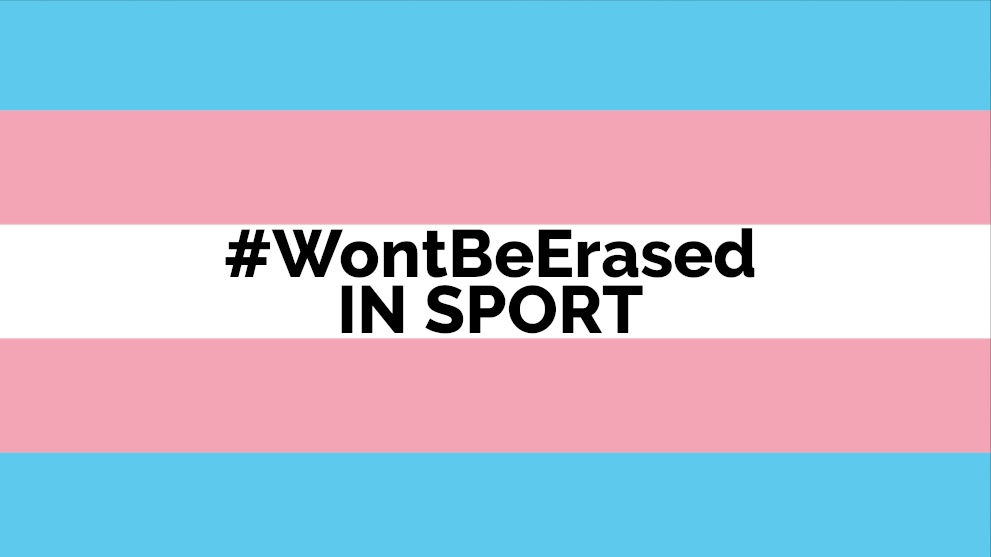
The Women’s Flat Track Derby Association Condemns Discriminatory Policy in the US
In recent days, the United States executive branch has suggested federal policy changes may be coming that would significantly harm transgender, nonbinary, genderqueer, intersex, and other gender nonconforming members of our communities. As the governing body for the sport of roller derby, the Women’s Flat Track Derby Association (WFTDA) denounces these proposed changes, which would be in direct opposition to the inclusive spirit of our roller derby community. We ask other sports governing bodies, amateur and professional, as well as organizations and individuals who recognize the value of inclusivity in sport to join us in pushing back on these discriminatory policies.
As a nonprofit proudly based in Austin, Texas, the WFTDA is saddened to hear of the U.S. Department of Health and Human Services’ interest in defining gender as a biological condition. In the eyes of the WFTDA, this is an attack on our core values as an organization.
In 1972, Title IX was introduced as part of the U.S. Education Amendments, to end “discrimination on the basis of sex.” Title IX specifically offered protections and space for women in amateur sports, addressing the collegiate system directly. In recent years, the NCAA has taken steps to begin extending these protections to transgender athletes wishing to compete at the highest level in their chosen sports, pushing Title IX to end discrimination not just on the basis of assigned sex, but also on the basis of gender expression and transgender status.
The WFTDA has also worked throughout its existence to re-evaluate its own gender policies and create its current gender statement, at the encouragement of the WFTDA community as well as our colleagues in the Junior Roller Derby Association, the Men’s Roller Derby Association, and other organizations that have contributed significantly to gender-expansive competition. Together, we recognize that a commitment to inclusivity makes our sport brighter and more competitive. Diversity adds complexity and nuance that would not otherwise exist on eight wheels. It’s our collective obligation to advocate for the human rights of our membership — especially those who have historically faced disproportionately larger barriers to inclusion.
Roller derby still has a lot of work to do to this end, and we are embracing the changes we need to make to have a safer, more welcoming community. We continue to do this important work amid a backdrop of government policies that makes global participation for our roller derby athletes and members a constant challenge.
Like recent immigration policy changes in the United States, the Title IX changes the Department of Health and Human Services suggest in their recent memo create a hostile environment in the global sports landscape. The steps that the executive branch has subsequently taken at the United Nations to eradicate protections for transgender people pose a worldwide threat. The collective impact of these moves could embolden discrimination and bigotry, erase civil rights protections, and invalidate the government-issued identity documents that allow transgender people to go about their daily lives. These actions discourage the dynamic international competition our sport is known for, and they effectively erase our fellow community members who look to the WFTDA — and to the sport of roller derby — to validate their talents and contributions in ways that many modern sports still refuse to do.
These moves are especially destructive to Indigenous transgender and nonbinary people in our community, for whom the history of discrimination is inexorably intertwined with the ugly legacy of colonialism. While terms such as genderqueer, transgender, nonbinary, agender, and Two Spirit may be new to the English language, these identities have always existed, often revered, within Indigenous communities, some of which recognize up to five genders. The term Two Spirit is a more recent identifier unique to Indigenous communities for peoples who exist both in the masculine and the feminine, while simultaneously existing in neither. As with many Indigenous traditions and beliefs, colonization forced these individuals into hiding, in fear of death or persecution. Recognizing that this Indigenous population faces violence and discrimination at a higher rate than their cisgender peers only further highlights the need for better understanding of this community and better legal protections globally.
Those of us in sports leadership face a changing global landscape, and the sports industry is not removed from political challenge — nor should it be when basic human rights are on the line. Each of us has a duty to uphold the values we project in our respective area of the sports industry. Roller derby in its modern incarnation may be a different sport than fans remember from decades ago but, like the outdated ideas and policies that typified those generations, we’ve become a stronger and more compelling version of ourselves, determined to change the face of what sports can be. We urge other sports and media entities to join us in standing for and with our community members who need our voices to amplify their own in speaking out. We echo the sentiment shared by Athlete Ally in their recent statement: “Trans rights are human rights, and everyone deserves to be safe and respected.”
For more information on ways you can personally support transgender rights, we recommend this list of action items provided by Chase Strangio of the ACLU.